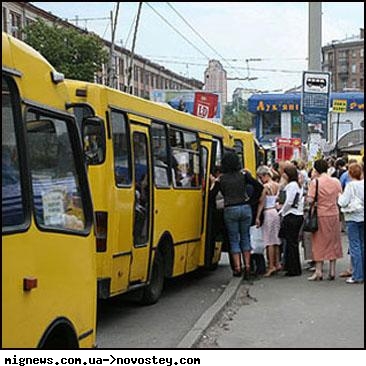 In the two small examples I am about to present, I see yet another rebuttal to the Hobbesian notion that without a supreme authority, the natural state of man is a war of all against all.
In the two small examples I am about to present, I see yet another rebuttal to the Hobbesian notion that without a supreme authority, the natural state of man is a war of all against all.
By U.S. standards, one might say there is a shortage of traffic lights in Ukrainian cities. Instead, there are designated cross-walks. The dynamics of them are interesting. The exact behaviors they cause aren’t perfect, but are much closer to ideal than the brute legal force of traffic lights.
A lone pedestrian, unless he or she is in a big hurry, will usually wait until several others accumulate to form a critical mass before they cross. But the pedestrians won’t go if there are just a few more cars. In that case, they’ll wait until there is room. These spontaneous behaviors all seems to be astonishingly mature.
They are also consistent with the experiences of a British town which saw a several-fold improvement in commute times after they shut off all their traffic lights. That’s right. They shut off all their traffic lights. There was no decrease in safety either.
[youtube]vi0meiActlU[/youtube]
The second example of spontaneous cooperate is a compliment to Ukrainians and a counter-example to this country’s ubiquitous corruption.
The marshutky (semi-private busses) in the city of L’viv are the most crowded public transportation I’ve ever encountered — as a child of the NYC subways, I do not make this claim idly. Imagine the impossibly crowded buses. How does everyone have room to pay the driver?
They don’t.
People pass money back and forth. You’ll be standing awkwardly, barely reaching the overhead railing for balance, and someone will pass you a 10 hryvnia note. “For two,” he’ll say. (The price is usually 1.5 to 2.5 hryvnias, i.e. 12 to 20 cents, depending on the route.)
Money gets passed forward, and change is passed back. Astonishing. Sometimes I spend the better part of my trip passing money back and forth, but this isn’t even the most impressive part.
There are no automatic machines like in NYC busses. The driver is responsible for all the financial transactions, making change, etc. How does he do it?
He doesn’t.
Once, it was I who found myself closest to the driver — I tried to avoid the spot, but couldn’t overcome the movements of the crowd. I was handed a 5 hryvnia note. “For one,” said the lady with the gigantic fur hat.
There was no one else between me and the panel beside the driver — no one to whom I could pass the money and responsibility. I looked above the windshield. A note read “1.75 hryvnias.”
I dropped the five onto a panel beside the driver which had money and change all over it. I gathered 3.25 hryvnias and put it back in the lady’s waiting hand. More money came my way, and still more. I dusted off my arithmetic and spend most of the trip making change. Money flew all over the place. A couple times, the driver reached over and organized some of the bills. I was too busy providing quick, accurate change.
I am reminded of anarchist Peter Kropotkin’s late-in-life observation about cooperation: “I failed to find,” he wrote, “although I was eagerly looking for it — that bitter struggle for the means of existence, among animals belonging to the same species, which was considered by most Darwinists (though not always by Darwin himself) as the dominant characteristic of struggle for life and the main factor of evolution.” What he saw instead was “Mutual Aid and Mutual Support carried on to an extent which made me suspect in it a feature of the greatest importance for the maintenance of life, the preservation of each species, and its further evolution.”
He concluded that
life in societies enables the feeblest animals, the feeblest birds, and the feeblest mammals to resist, or to protect themselves from the most terrible birds and beasts of prey; it permits longevity; it enables the species to rear its progeny with the least waste of energy and to maintain its numbers albeit a very slow birth-rate; it enables the gregarious animals to migrate in search of new abodes. Therefore, while fully admitting that force, swiftness, protective colors, cunningness, and endurance to hunger and cold, which are mentioned by Darwin and Wallace, are so many qualities making the individual or the species the fittest under certain circumstances, we maintain that under any circumstances sociability is the greatest advantage in the struggle for life. Those species which willingly abandon it are doomed to decay; while those animals which know best how to combine have the greatest chance of survival and of further evolution, although they may be inferior to others in each of the faculties enumerated by Darwin and Wallace, except the intellectual faculty.

